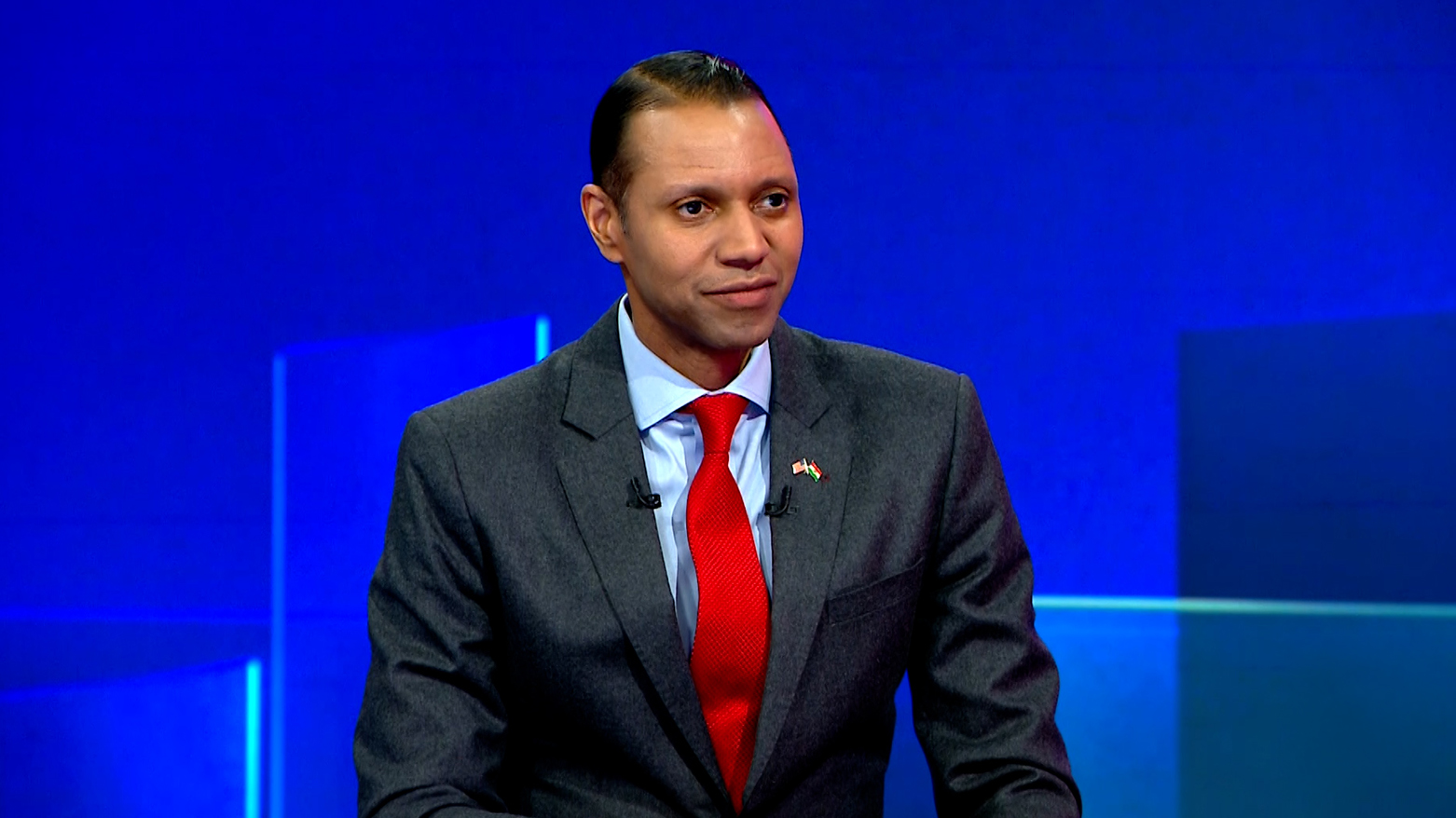'IOCs Demand Written Agreements, Payment Surety', APIKUR Spokesperson
Speaking exclusively to Kurdistan24, Caggins laid out APIKUR’s conditions, stressing that without clear, binding agreements, international oil companies will not proceed with production and exports.

ERBIL (Kurdistan24) – As discussions continue over the resumption of oil exports from the Kurdistan Region, Colonel Myles B. Caggins III, spokesperson for the Association of the Petroleum Industry of Kurdistan (APIKUR), has emphasized the necessity of formal agreements before any further steps are taken.
Speaking exclusively to Kurdistan 24, Caggins laid out APIKUR’s conditions, stressing that without clear, binding agreements, international oil companies (IOCs) will not proceed with production and exports.
APIKUR’s Stance on Oil Exports
Caggins explained that APIKUR, which represents eight companies operating in the Kurdistan Region, collectively produces over 60% of the region’s oil.
He clarified that while APIKUR welcomes the Iraqi Oil Minister’s statement regarding the resumption of oil exports, the reality is that no formal agreements are currently in place. According to him, the lack of written contracts is a fundamental obstacle preventing exports from moving forward.
“We need agreements in writing. These are called sales agreements and lifting agreements. Our companies need to know that when they produce oil, they will get payment and the path for payment,” Caggins stated.
He emphasized that across the global oil industry, including in federal Iraq, such agreements are standard practice, ensuring both producers and buyers have a clear understanding of their obligations. Without these legal documents, APIKUR companies remain hesitant to restart production.
Caggins illustrated the issue with a simple analogy: “I was at a restaurant in Zakho a couple of days ago, and I had breakfast. The restaurant owner understood that if he gave me chai, I was going to pay him in Iraqi dinar. It’s the same concept. If our companies are producing oil, they need to know how and when they will get paid.”
Aligning Payments with the Iraqi Budget Law
Another major concern raised by APIKUR is ensuring that payments to oil companies align with the Iraqi Budget Law.
Under the current arrangement, the Iraqi central government provides payments to the KRG based on total oil production in the Kurdistan Region. These funds are then allocated among oil companies based on production volumes.
Caggins highlighted the importance of ensuring that APIKUR companies receive payments consistent with their contracts with the KRG and in accordance with Iraq’s budget law.
He further stressed that the Iraqi Prime Minister has publicly expressed the need to resume oil exports for the benefit of all Iraqis.
The U.S. government, including Secretary of State Marco Rubio, has also voiced support for the continuation of Kurdistan’s oil exports, recognizing the economic benefits it brings to Iraq as a whole.
Caggins emphasized that honoring contracts with oil companies would enhance Iraq’s attractiveness to foreign investors across multiple industries.
Addressing Outstanding Payments and Future Export Volumes
Before resuming exports, APIKUR insists that there must be a structured plan to address outstanding payments. Caggins revealed that international oil companies operating in Kurdistan were not paid for the oil they produced between October 2022 and March 2023, resulting in over one billion dollars in arrears.
He stressed that before production resumes, there must be a written plan outlining how these arrears will be repaid.
“We just need to know that there is a plan in writing for us to get the money. That plan needs to be written on paper and agreed to for how the companies will get repaid and when they will get repaid,” he said, acknowledging that different companies may have their own individual decisions to make but stressing the need for a clear financial roadmap.
Furthermore, APIKUR seeks assurances regarding future oil export volumes. Decisions about how much oil will be exported and at what rates must also be specified in formal agreements.
“You see, it all comes back to these written agreements,” Caggins reiterated. “We cannot do business based on press statements and tweets. We need agreements on paper.”
As Baghdad and Erbil continue negotiations on the future of Kurdistan’s oil sector, APIKUR remains firm in its position that transparency and contractual certainty are non-negotiable.
With ongoing discussions between the KRG, Baghdad, and international stakeholders, the coming weeks will be crucial in determining whether an agreement can be reached that satisfies all parties.
Caggins concluded by reaffirming APIKUR’s commitment to its investments in Kurdistan and willingness to cooperate in securing a sustainable future for oil production in the region.
However, he made it clear that without written agreements, the resumption of Kurdistan’s oil exports remains uncertain.